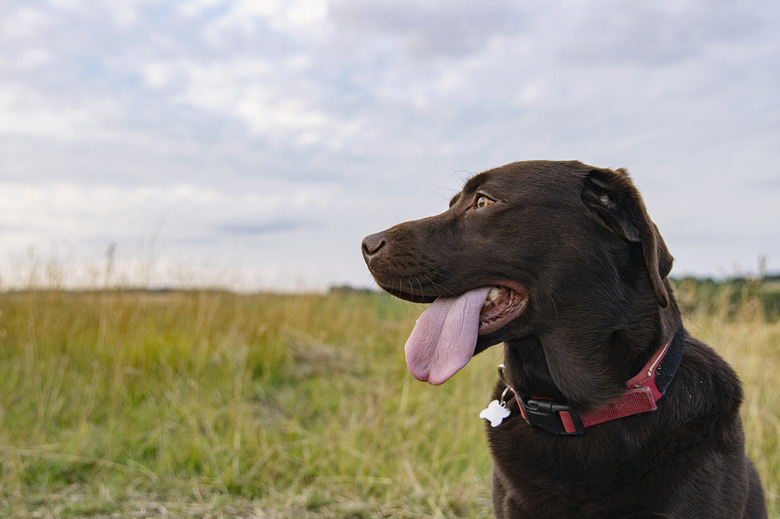Dog Diseases That Cause Bruising
If you notice bruising on your dog's skin and don't recall him experiencing any recent injuries, call your vet for an examination. A dog bruise may indicate he's suffering from a bleeding disorder or an underlying condition of which bruising is a symptom. The latter includes diabetes, Cushing's disease, vasculitis, leukemia, bone marrow cancer, or kidney or liver disease. Treatment depends on the diagnosis.
Dog bruise types
Dog bruise types
Bruising results from small amounts of hemorrhaging beneath the skin. Petechia is the classic bruise, resulting in a purplish area. If the bruise occurs on the mucous membranes, it's an ecchymosis. If your dog's bruising wasn't caused by an injury, your vet can get to the bottom of it by performing blood tests, urinalysis, a biochemistry profile, X-rays, and ultrasounds.
Your vet will create a treatment plan based on the cause of the bruising. Make sure to monitor your dog for new bruises and for blood in the stool, urine, or vomit. If the condition is genetic, do not breed your dog as the condition may be passed on to the puppies.
Clotting factor issues
Clotting factor issues
Clotting factor problems can be genetic or triggered by the ingestion of rat poison or similar chemicals. If you see bruising on your dog's skin, consider yourself lucky, because some dogs with clotting, or coagulation, disorders only bleed internally and you might not be able to tell anything is wrong with your pet until it's too late.
Dogs with liver disease can develop clotting issues as many clotting factors are produced in the liver. Toxins and poisons that damage the liver can interfere with the production of clotting factors. Your veterinarian may administer injected and oral vitamin K as a treatment for rat poison.
Many of these clotting disorders are genetic, with certain breeds predisposed to a particular disease. For example, prothrombin deficiency occurs in cocker spaniels, causing an increased likelihood of bruising. Factor VII deficiency affects beagles, boxers and bulldogs, among others, resulting in excessive bruising after surgery.
Bruising caused by canine thrombocytopenia
Bruising caused by canine thrombocytopenia
Thrombocytopenia occurs when a dog doesn't have a sufficient number of platelets in his bloodstream. Platelets help the blood to clot and bruising is one sign of the condition . Thrombocytopenia can result from trauma, poisoning, chemotherapy, or an immune-related disease.
In addition to bruising on the skin or gums, signs of thrombocytopenia include dark, tarry stools or nasal bleeding. After confirming the diagnosis with a blood test, your vet might prescribe corticosteroids to treat the condition, along with a blood transfusion, if necessary.
Additional testing may be necessary to uncover any underlying conditions and treatment requirements. Some conditions that may lead to thrombocytopenia include rickettsial diseases transmitted by ticks, cancer, and a reaction to a vaccine or medication. In a dog with frequent episodes of immune-mediated thrombocytopenia, the vet might perform a splenectomy, or spleen removal.
Von Willebrand's disease
Von Willebrand's disease
Excessive bleeding, including bruising, is the major symptom of the hereditary Von Willebrand's disease. Von Willebrand's disease most often affects basset hounds, Doberman pinschers, Manchester terriers, golden retrievers, German shepherds, standard poodles, Scottish terriers, miniature schnauzers, Pembroke Welsh corgis, and Shetland sheepdogs, along with mixes of these breeds.
Dogs with Von Willebrand's may need blood transfusions. There's no cure or other treatment for the disease, so owners must ensure that their dogs don't play too rough or engage in activities that easily can lead to a dog bruise or other wounds.
Always check with your veterinarian before changing your pet's diet, medication, or physical activity routines. This information is not a substitute for a vet's opinion.


